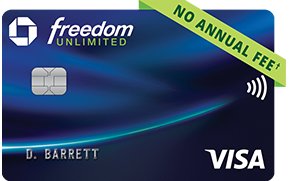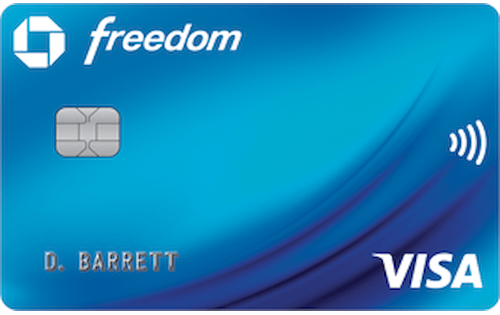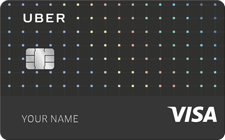- myFICO® Forums
- Types of Credit
- Credit Cards
- Re: Statements and reporting
- Subscribe to RSS Feed
- Mark Topic as New
- Mark Topic as Read
- Float this Topic for Current User
- Bookmark
- Subscribe
- Mute
- Printer Friendly Page
Statements and reporting
Is your credit card giving you the perks you want?
Browse credit cards from a variety of issuers to see if there's a better card for you.
- Mark as New
- Bookmark
- Subscribe
- Mute
- Subscribe to RSS Feed
- Permalink
- Report Inappropriate Content
Statements and reporting
Starting from scratch... all hypothetical of course. Brand new account/ Capital One Platinum /45 days until first payment is due
I charge 100.00 of a 300.00 CL on the 1st of the month, my statement cuts on the on or around the 24th , the payment is due on whatever date following the statement availability, I want to pay 90% of the owed balance and leave some revolving, when would I pay the said amount so that it reflects on my CBs as 10% revolving (or 10.00)? Before the due date? Right after the statement cuts? How much of a time constraint is there between statement availability and payment due ,to basically choose what you want reporting? Does this vary between card issuers?
On my credit union account, my statement cuts on the 20th and the payment is due on the 17th of the following month for that statement on the 20th. When would be the ideal time frame to be able to choose what I want reporting in this case too?
- Mark as New
- Bookmark
- Subscribe
- Mute
- Subscribe to RSS Feed
- Permalink
- Report Inappropriate Content
Re: Statements and reporting
If I understand it correctly, the timeframe between the payment due date and statement cut depends on the card issuer. For Capital One, normally 3 days after the payment due date. To report the balance I want, the latest I can do is a day before statement cuts. To be safe, do it 2 days before statement cuts. In your case you can pay most of it and leave $10 for the statement cut.
- Mark as New
- Bookmark
- Subscribe
- Mute
- Subscribe to RSS Feed
- Permalink
- Report Inappropriate Content
Re: Statements and reporting
Don't intentionally revolve a balance. That means paying interest. There's absolutely no benefit to doing that.
If you'd like your card to report a balance, make sure your previous statement balance is paid in full by the due date. Before the next statement date, bring your balance down to the amount you desire.
- Mark as New
- Bookmark
- Subscribe
- Mute
- Subscribe to RSS Feed
- Permalink
- Report Inappropriate Content
Re: Statements and reporting
- Mark as New
- Bookmark
- Subscribe
- Mute
- Subscribe to RSS Feed
- Permalink
- Report Inappropriate Content
Re: Statements and reporting
But you don't have to leavea balance to do so. That's just giving the bank free money. However much credit usage you want reported to the credit bureau, pay your card down to a certain amount before your statement cuts. Once your statement cuts, you can pay the rest of it off. If you're not going to be applying for more credit anytime soon, then you could just only pay once after your statement cuts. Credit usage only has 1-2 month history so its not a big deal unless you neeed to apply for credit soon as you can easily change it within a month.






FICO 8 Scores
TU: 743 [2 Inquiry] | EQ: 742 (FAKO) [0 Inquiry] | EX: 753 [4 Inquiries]
AAoA = 2 years, AAoOA = 3 year 1 months
- Mark as New
- Bookmark
- Subscribe
- Mute
- Subscribe to RSS Feed
- Permalink
- Report Inappropriate Content
Re: Statements and reporting
Let’s say the statement cuts on the 24th and the due date is the 21st of the following month. When the statement ended you had a $300 balance on your card. Between the statement cut date and the due date you charge $1000 bringing your balance to $1300. You pay $300 before the due date so would that mean you wouldn’t pay any interest? Or if you paid half only that half would be charged interest?
- Mark as New
- Bookmark
- Subscribe
- Mute
- Subscribe to RSS Feed
- Permalink
- Report Inappropriate Content
Re: Statements and reporting
That's why they invented autopay so that you will never be late or pay interest, and giving you even more time for your kids and plate.
@Anonymous wrote:
Paying a few dollars in interest doesnt bother me.It takes the headache away for having to remember to do these things. We have kids , so our plate is pretty full already.
- Mark as New
- Bookmark
- Subscribe
- Mute
- Subscribe to RSS Feed
- Permalink
- Report Inappropriate Content
Re: Statements and reporting
@Anonymous wrote:
I actually have a question that may help the OP
Let’s say the statement cuts on the 24th and the due date is the 21st of the following month. When the statement ended you had a $300 balance on your card. Between the statement cut date and the due date you charge $1000 bringing your balance to $1300. You pay $300 before the due date so would that mean you wouldn’t pay any interest? Or if you paid half only that half would be charged interest?
If you pay the full statement balance of $300 by due date, you'll retain your grace period on the new charges, $1000 new charges will go on your next statement and won't be due until the next due date. As long as you pay the FULL previous statement balance by due date, there would be no interest.
On the other hand if you only pay half of the full statement balance ($150) on due date, you are now carrying a balance, not only will you pay interest for the remaining $150, you have also lost your grace period for new charges and interest on the new charges will start from the day they're charged.
- Mark as New
- Bookmark
- Subscribe
- Mute
- Subscribe to RSS Feed
- Permalink
- Report Inappropriate Content
Re: Statements and reporting
- Mark as New
- Bookmark
- Subscribe
- Mute
- Subscribe to RSS Feed
- Permalink
- Report Inappropriate Content
Re: Statements and reporting
Or you can work on overcoming that mental block (peace of mind) and just set your autopay to pay the full statement balance on or slightly before due date while keeping your money in interest bearing account through grace period. It makes absolutely 0 difference to lenders, scores and your budget if you pay the statement balance 1 day after it's cut or on due date (usually 25 days later), using autopay not only makes financial sense, it will free up tons of time and energy that's needed to manually micromanage, but most of all, it puts the onus on the lender to execute the payments and eliminates human errors. Of course you will have to take precautions and double check when setting up autopay, and make sure the payment account is properly funded.
@Anonymous wrote:
That’s great info, thanks! I usually pay twice a month and I put literally everything through my cards. One of my statements closed at $374 and I paid $500 a few days later and wasn’t charged any interest. I usually treat the statement close date as the payment due date for budgeting purposes and peace of mind.